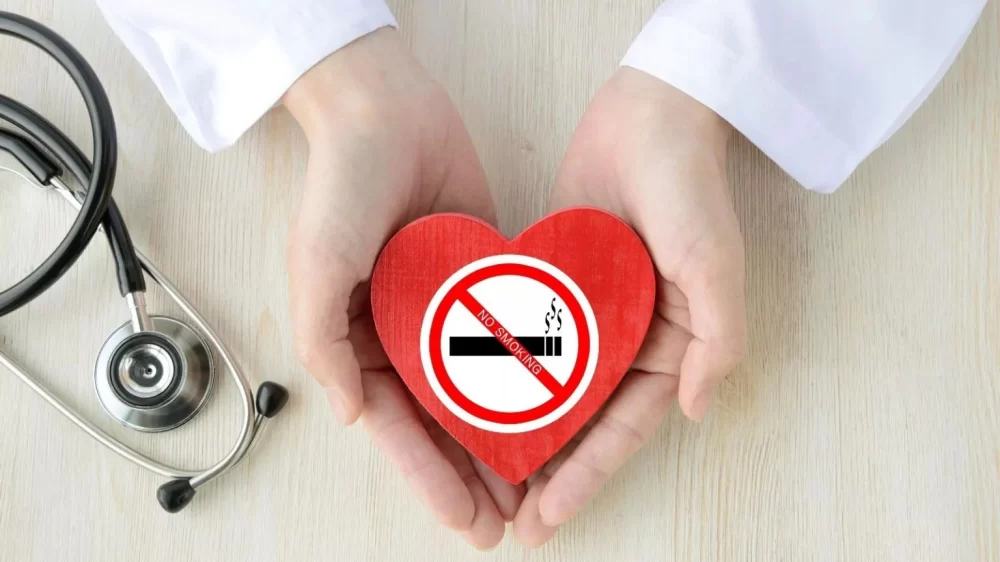- Introduction to Heart Disease and Smoking
- The Impact of Smoking on Heart Health
- Benefits of Quitting Smoking for Your Heart
- Real-Life Stories of Quitting Smoking
- Effective Smoking Cessation Strategies
- Conclusion
Understanding Heart Disease and Smoking
Heart disease is one of the leading causes of death worldwide, and smoking is a major contributor to its development. The harmful chemicals in cigarettes damage the heart and blood vessels, increasing the risk of heart attacks, strokes, and other cardiovascular diseases. Quitting smoking is one of the most impactful decisions you can make for better heart health. In this article, we will explore the detrimental effects of smoking on the heart, the benefits of quitting, and strategies for successfully kicking the habit.

The Impact of Smoking on Heart Health
Smoking causes a variety of issues that negatively affect cardiovascular health. One of the primary ways smoking harms the heart is by narrowing blood vessels, which makes it harder for blood to flow freely. This increased strain on the heart leads to higher blood pressure and an elevated risk of developing atherosclerosis—a condition where plaque builds up in the arteries, restricting blood flow.
Moreover, smoking lowers the levels of good cholesterol (HDL) and raises the levels of bad cholesterol (LDL), further increasing the risk of heart disease. Smoking also triggers inflammation, which can accelerate the development of plaque in the arteries, leading to blood clots that may cause heart attacks or strokes.
Capital Health Medical Center – Hopewell
capital health medical center hopewell
1 Capital Way, Pennington, NJ 08534, USA

Benefits of Quitting Smoking for Your Heart
Quitting smoking is a life-changing decision, especially for your heart. The benefits of quitting smoking begin almost immediately after you stop. Within just 20 minutes of quitting, your heart rate and blood pressure begin to drop. Over time, your risk of heart disease, stroke, and other smoking-related conditions decreases significantly. Here's a breakdown of some key health improvements:
- Within 24 hours: Your heart rate and blood pressure return to normal.
- Within 1 year: Your risk of heart disease is halved compared to someone who continues smoking.
- Within 5 years: Your risk of stroke is reduced to that of a non-smoker.
- Within 10 years: Your risk of heart attack is almost the same as someone who has never smoked.
Additionally, quitting smoking improves circulation, reduces the risk of blood clots, and enhances the oxygen levels in your blood, all of which contribute to better heart health. These changes can help prevent the onset of heart disease and improve your overall well-being.
Real-Life Stories of Quitting Smoking
Many people have successfully quit smoking, transforming their lives and improving their heart health. Take the case of John, a 45-year-old smoker who had been smoking for over 20 years. He had a family history of heart disease and was constantly worried about his own health. After suffering from shortness of breath and chest pain, John decided to quit smoking. Within a year, he noticed significant improvements in his energy levels, and his doctor reported that his cholesterol levels had improved.
Another inspiring story comes from Maria, a 33-year-old who had smoked since her teenage years. After learning about the serious risks smoking posed to her heart, Maria took the step to quit. With the support of a smoking cessation program, she was able to stop smoking for good. Two years later, she felt healthier, her blood pressure had stabilized, and she was able to run for the first time in years without feeling winded.
These stories highlight the remarkable transformation that can occur when individuals commit to quitting smoking. Their experiences show that quitting smoking is a powerful way to protect your heart and improve your quality of life.
Effective Smoking Cessation Strategies
Quitting smoking can be challenging, but with the right approach, it is entirely possible. Here are some effective strategies that can help you quit:
- Set a Quit Date: Choose a specific date to quit and stick to it. This gives you time to prepare mentally and physically.
- Seek Support: Support groups, counseling, and friends and family can provide encouragement and accountability.
- Use Nicotine Replacement Therapy: Nicotine patches, gums, or lozenges can help manage cravings during the quitting process.
- Stay Active: Physical activity can help reduce stress and distract you from the urge to smoke.
- Celebrate Milestones: Reward yourself for reaching milestones, such as one week, one month, or one year smoke-free.
If you're looking for the best resources and support to quit smoking, consider visiting HeartCare Hub for helpful products and services designed to support your journey toward better health.
Conclusion
Quitting smoking is one of the best decisions you can make for your heart health. The damage caused by smoking is extensive, but with dedication and the right strategies, you can significantly reduce your risk of heart disease and improve your overall well-being. The benefits of quitting begin almost immediately, and over time, you will see vast improvements in your cardiovascular health.
If you're ready to quit smoking, remember that support is available. HeartCare Hub provides a range of resources that can help you make this important life change. Start your journey today, and give your heart the care it deserves!






















Deborah Heart and Lung Center
deborah heart and lung center
200 Trenton Rd, Browns Mills, NJ 08015, USA